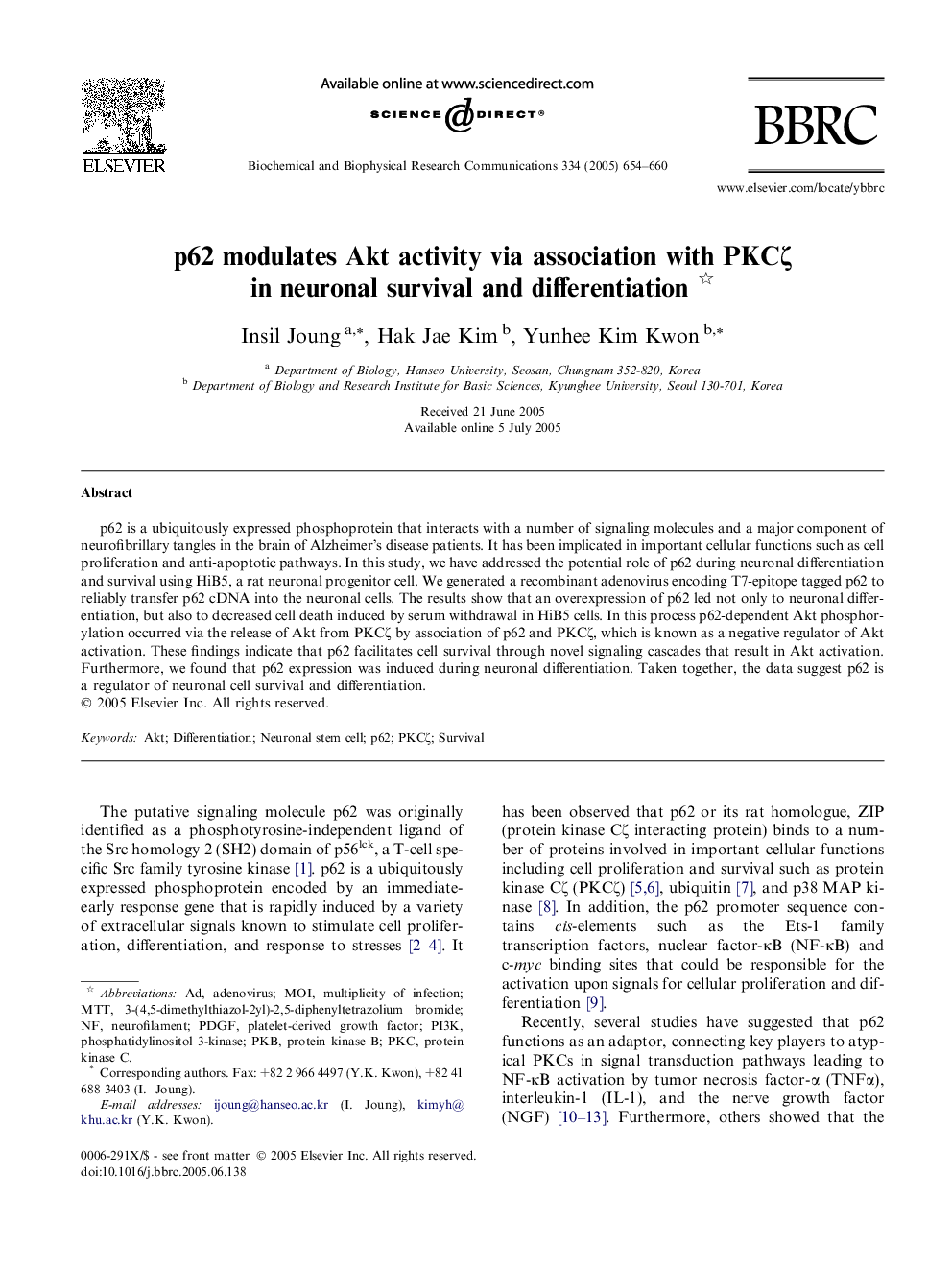| Article ID | Journal | Published Year | Pages | File Type |
|---|---|---|---|---|
| 10769258 | Biochemical and Biophysical Research Communications | 2005 | 7 Pages |
Abstract
p62 is a ubiquitously expressed phosphoprotein that interacts with a number of signaling molecules and a major component of neurofibrillary tangles in the brain of Alzheimer's disease patients. It has been implicated in important cellular functions such as cell proliferation and anti-apoptotic pathways. In this study, we have addressed the potential role of p62 during neuronal differentiation and survival using HiB5, a rat neuronal progenitor cell. We generated a recombinant adenovirus encoding T7-epitope tagged p62 to reliably transfer p62 cDNA into the neuronal cells. The results show that an overexpression of p62 led not only to neuronal differentiation, but also to decreased cell death induced by serum withdrawal in HiB5 cells. In this process p62-dependent Akt phosphorylation occurred via the release of Akt from PKCζ by association of p62 and PKCζ, which is known as a negative regulator of Akt activation. These findings indicate that p62 facilitates cell survival through novel signaling cascades that result in Akt activation. Furthermore, we found that p62 expression was induced during neuronal differentiation. Taken together, the data suggest p62 is a regulator of neuronal cell survival and differentiation.
Related Topics
Life Sciences
Biochemistry, Genetics and Molecular Biology
Biochemistry
Authors
Insil Joung, Hak Jae Kim, Yunhee Kim Kwon,
